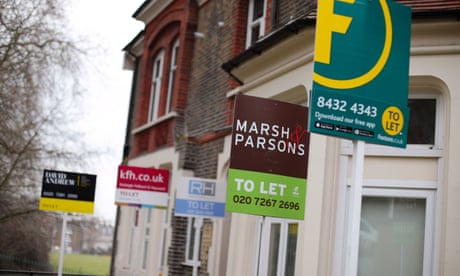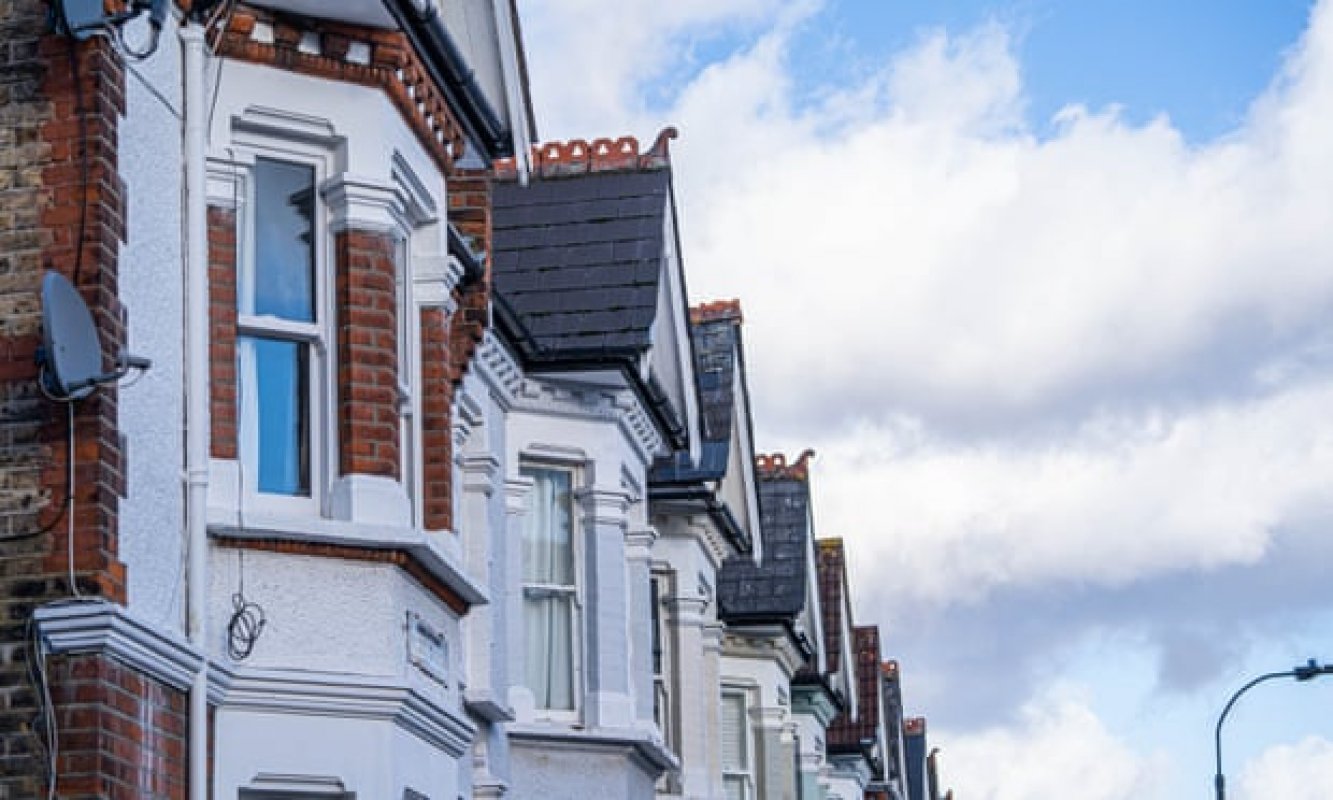Asking prices for homes coming on to the market in Britain rose by a record 2.3% in February, according to the property website Rightmove.
The listing site said it was the biggest monthly increase in the 20 years it has kept records and meant the average advertised cost of a home was up by £7,785, to £348,804. Over the past 12 months, asking prices have gone up by 9.5%.
While the number of new property listings increased by 11% during the month, the number of people looking to buy a property rose by 16%, the website said.
“This new record means that average asking prices have now risen by nearly £40,000 in the two years since the pandemic started, compared to just over £9,000 in the previous two years,” a spokesperson said.
The figures show a widening gap between the number of buyers and sellers that property experts say will maintain house price inflation this year well above annual salary increases.
 First-time buyers are expected to lose out in the race to buy the few properties on the market.
First-time buyers are expected to lose out in the race to buy the few properties on the market.Wealthier buyers, many of whom have saved large deposits during the pandemic, are among those caught by the “fear of missing out”, which Rightmove said would continue to drive prices higher over the coming months.
Tim Bannister, the firm’s director of property data, said as Covid restrictions were lifted “we now have a group of movers who are looking to return closer to major cities, or at least within comfortable commuting distance of their workplaces”.Many estate agents have reported struggling to secure asking prices during the pandemic, but the shortage of homes for sale could lead to bidding wars and the return of gazumping in hotspot areas.
London property prices, which had stagnated after the Brexit vote in 2016, recorded the biggest annual jump in inquiries to estate agents of any region – up 24% year on year.
The capital also had its highest annual rate of price growth in the last five years as the end of pandemic restrictions and a return to the office made London and its suburbs an attractive option again.
Earlier this month, Nationwide said sale prices in January were up by 11% on the same month in the previous year, giving house price inflation in 2022 the strongest start since 2005.
The building society said property transactions in 2021 were at their highest level since 2007 and about 25% higher than in 2019, before the pandemic struck.
However, the low level of stock being released for sale meant the gap between the number of homes on the market and rising demand had continued to grow.
A separate report by the agents Knight Frank found that the fastest growth in property values was in the home counties and on the outskirts of London where houses with outside space and good schools nearby were increasingly desirable.
Tom Bill, the firm’s head of UK residential research said it was more reliable to use price per square foot as a measure of value, and while this put parts of central London at the top of the pile, many fashionable areas outside the capital were catching up.
However, two wards in Oxford – Summertown and Walton Manor – and three in areas to the south-west of London were the fastest risers.
“The market in north Oxford has the classic drivers of great properties, shopping and schools,” said William Kirkland, the head of Knight Frank’s Oxford office. “From Summertown you can walk to some very good state and independent schools, which is why people are still choosing to come here from London.”
Retrieved from:https://www.theguardian.com/money/2022/feb/21/asking-prices-for-uk-homes-show-record-rise-as-demand-exceeds-supply (22, Feb 2022)
The information provided on this website is for reference only. C21 International shall not be liable for any errors, omissions, misstatements, or misrepresentations (express or implied), concerning any Information, and shall not have or accept any liability, obligation, or responsibility whatsoever for any loss, destruction, or damage (including without limitation consequential loss, destruction or damage) howsoever arising from or in respect of using, misusing, inability to use, or relying on the Information.

